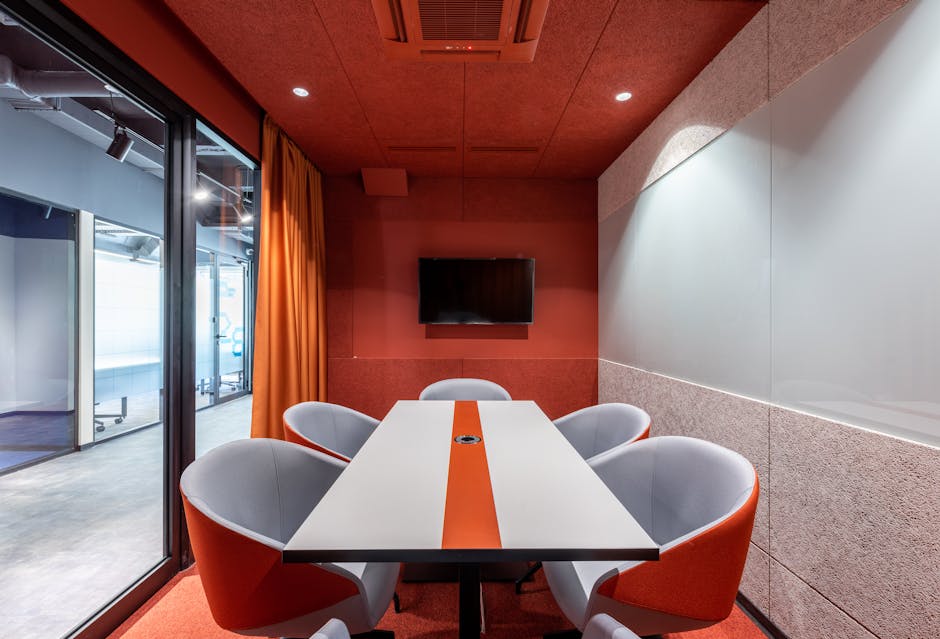Infusing Hospitality into Workplace Experience Management
"This article explores the importance of infusing hospitality into workplace experience management. By focusing on creating a welcoming, engaging, and customer-centric environment, companies can boost employee satisfaction, productivity, and retention. Learn from industry experts and discover practical tips for transforming your workplace culture. "

The Growing Importance of Workplace Experience
In recent years, the concept of workplace experience has gained significant attention among companies looking to attract and retain top talent. Beyond just providing snacks and ping-pong tables, workplace experience focuses on how the physical space and company culture affect employees, customers, and visitors alike.

As Flash Coughlin, Head of Workplace at WOX, explains, "When I hear the term workplace and workplace experience, my brain immediately switches to the customer service side and the hospitality side. You have all these elements that are running, and that you're supporting. But how's that making everyone here happy or more productive, more engaged, or feeling motivated?"
Infusing Hospitality into the Workplace
One key aspect of creating a positive workplace experience is infusing hospitality into the environment. This means focusing on creating a welcoming, engaging, and customer-centric atmosphere that caters to the needs of employees, visitors, and customers.
Some practical ways to infuse hospitality into the workplace include:
- Providing a warm welcome at the front desk
- Offering refreshments and snacks
- Creating comfortable and inviting common areas
- Ensuring clear signage and wayfinding
- Providing amenities like wellness rooms and meditation spaces

By focusing on these elements, companies can create a workplace that feels more like a high-end hotel than a traditional office. This, in turn, can boost employee satisfaction, productivity, and retention.
The Role of Workplace Experience Teams
To successfully infuse hospitality into the workplace, companies are increasingly turning to dedicated workplace experience teams. These teams are responsible for managing all aspects of the physical space and company culture, from facilities management to event planning.
As Coughlin notes, "I break that down to workplace and facilities. And in my brain those make me think of two very different areas of what we do. When I think of facilities, I think of the physical space and all the things that run that, the electrical, the plumbing, the furniture, the paint on the walls, the janitorial, the catering, all of the backbone of the operation."

By having a dedicated team focused on workplace experience, companies can ensure that every aspect of the physical space and company culture is carefully curated to create a welcoming and engaging environment.
Measuring the Impact of Workplace Experience
Of course, infusing hospitality into the workplace is not just about creating a nice atmosphere – it's also about driving tangible business results. To measure the impact of workplace experience initiatives, companies can track metrics like employee satisfaction, productivity, and retention.
One tool that can help with this is workplace integrations, which allow companies to streamline various aspects of the workplace experience and gather valuable data on how employees are interacting with the space.

By continuously measuring and optimizing the workplace experience, companies can ensure that their investments in hospitality are paying off in terms of employee engagement and business results.
The Future of Workplace Experience
As the world of work continues to evolve, the importance of workplace experience is only set to grow. With the rise of remote work and distributed teams, creating a welcoming and engaging physical space is more important than ever for fostering a sense of community and belonging.
Looking ahead, we can expect to see even more companies investing in workplace experience initiatives, from redesigning office spaces to implementing new technologies like desk booking systems and virtual reality.
As Coughlin puts it, "Every workplace manager should be thinking about how they create the spaces that do feed the different needs of the different types of employees you have."
By infusing hospitality into the workplace and continuously optimizing the employee experience, companies can create a culture that attracts and retains top talent, drives business results, and sets them up for success in the future of work.
Want to learn more about Workplace Experience?
Explore our complete guide with more articles like this one.


